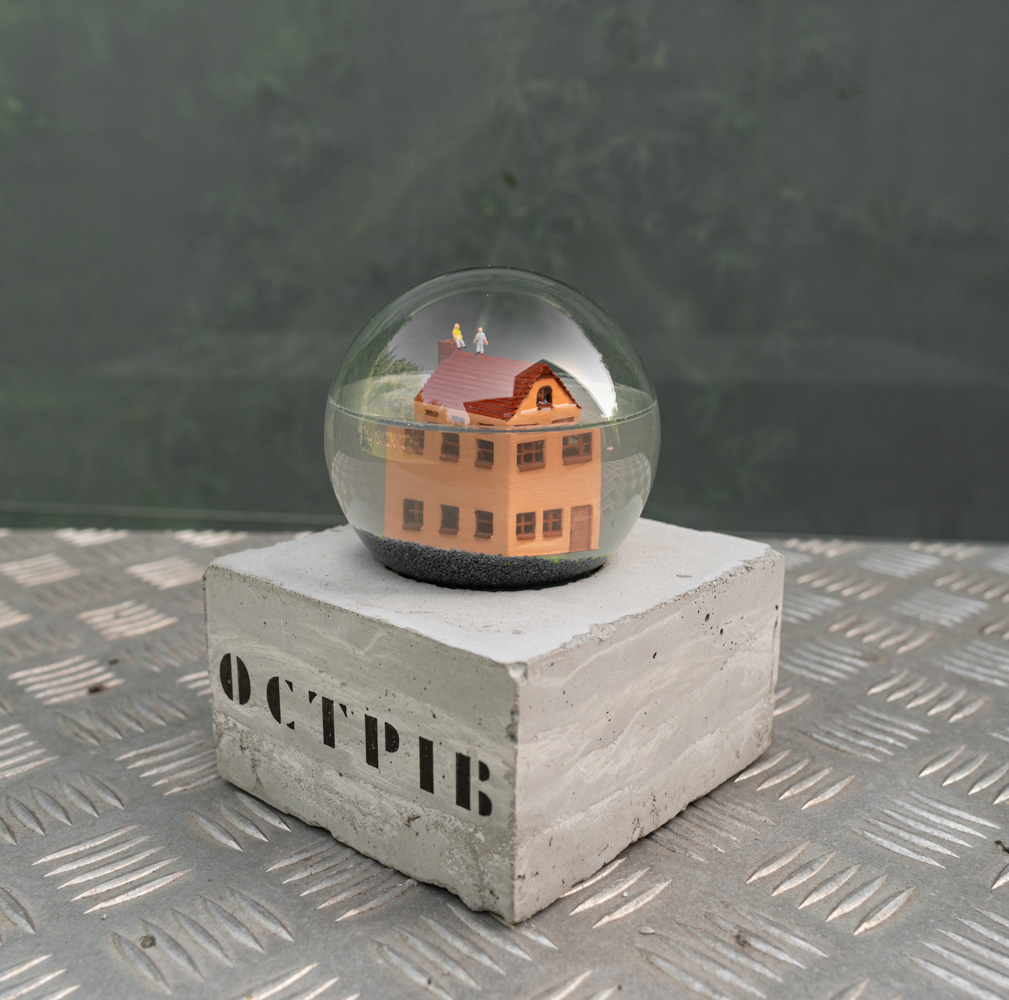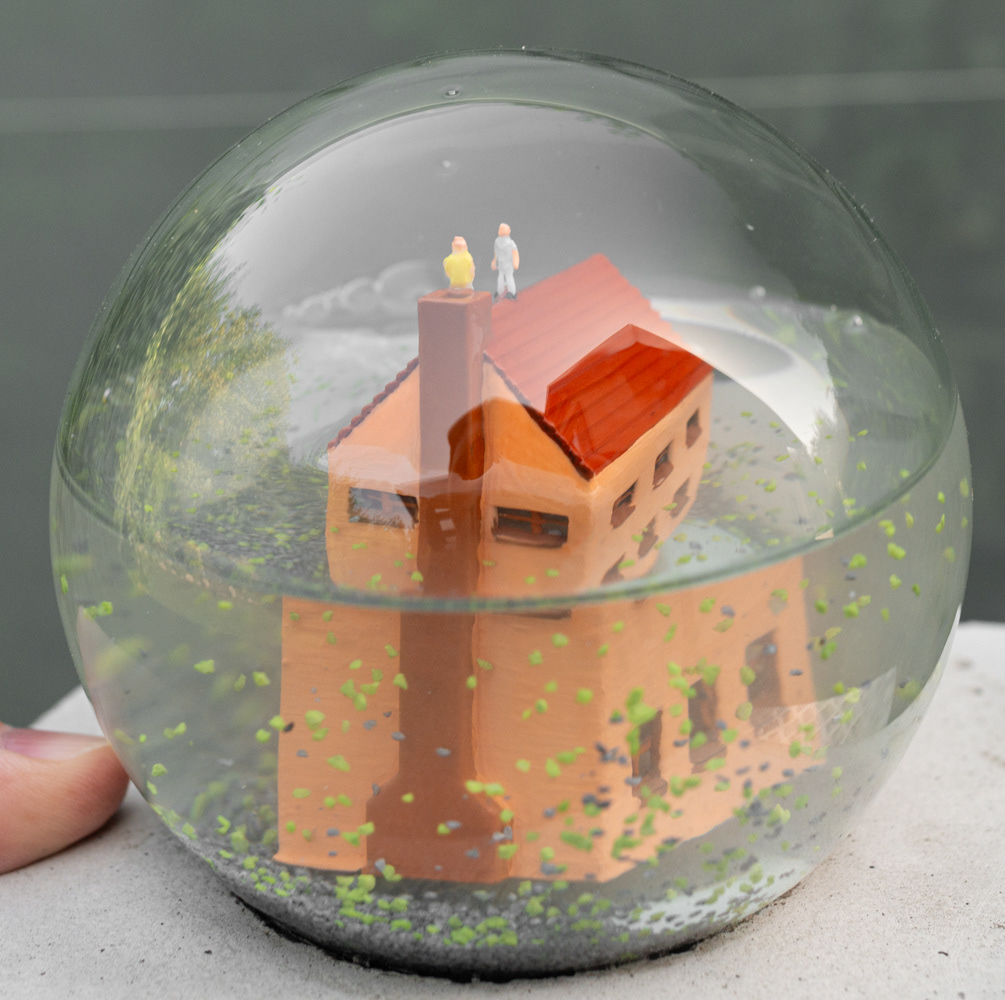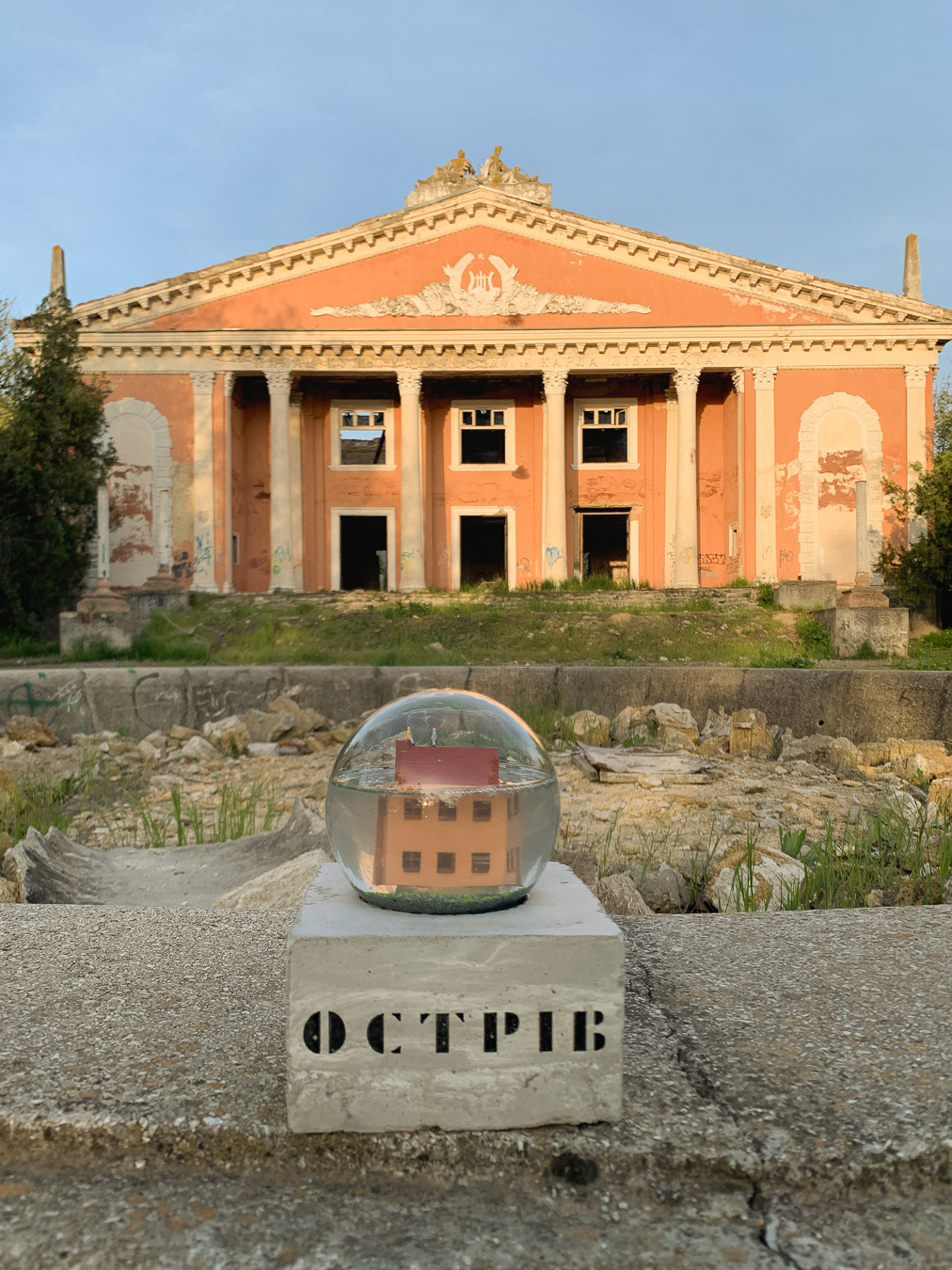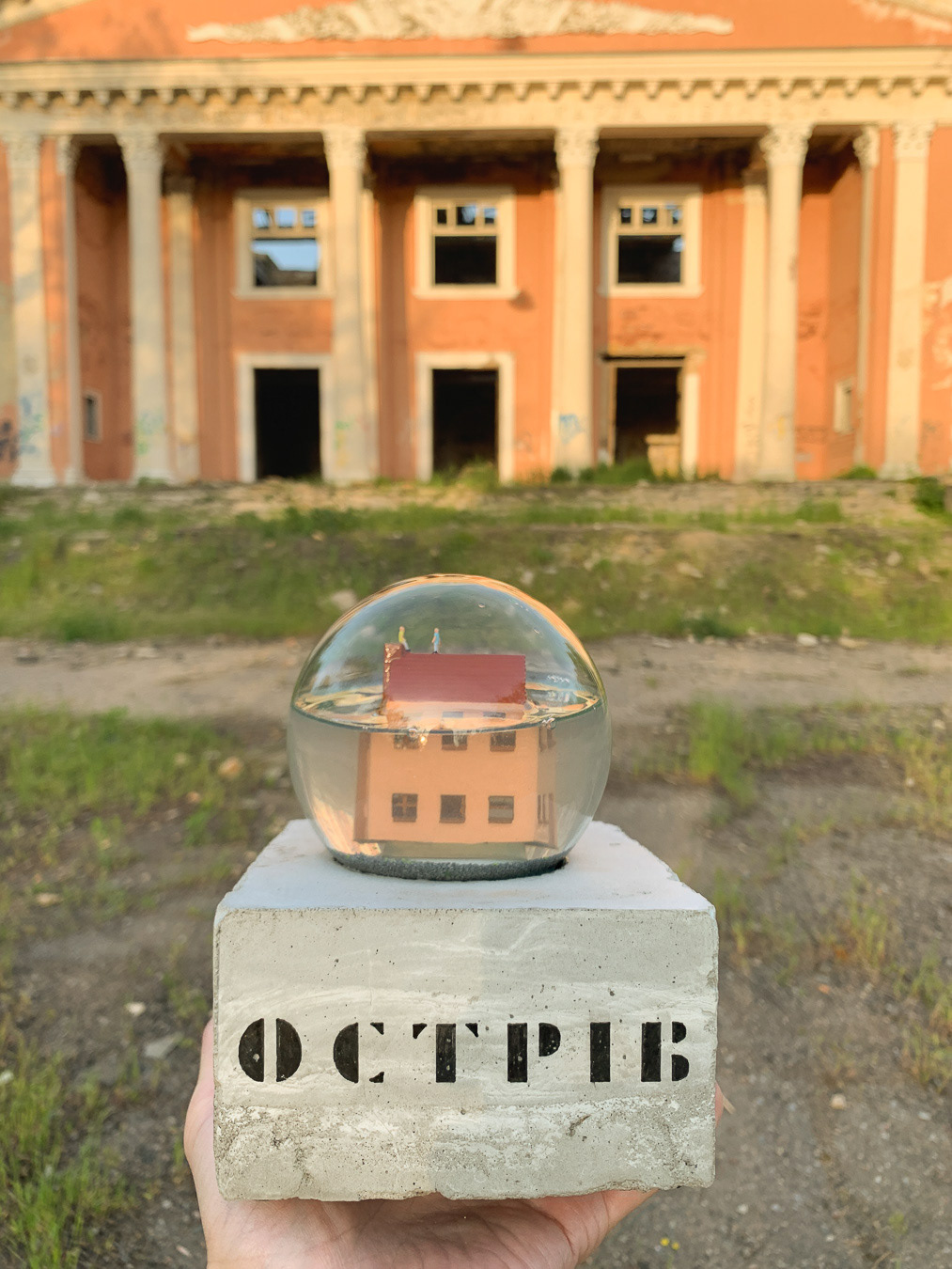Collaboration with Nadiya Petrovska
Concrete, glass, plastic, acrylic, liquid.
Size: 12 x 13 x15 cm
It began long before the war started in 2014, long before the full-scale invasion, the occupation of Kherson, or the destruction of the Kakhovska Dam. It began with a repetitive dream that Nadia had for the first time as a child. In it, she stood on the rooftop of her flooded building, watching the water stretch to the horizon as boats navigated her Kherson neighborhood, "The Island." In late February 2022, during the first days of the invasion, I had a similar dream: my street and my building were deep underwater. I was floating up toward the light, a source that was breaking through the surface.
I have no idea when this truly began. When people started lining up for food and looting stores, I never considered that these emotions could belong to those who had never experienced war. I never realized that my own feelings, thoughts, and actions were not truly mine—that I could not have acquired them on my own. It is as if we have been preparing for this all our lives, as if hidden scripts, dormant in the depths of our consciousness during peacetime, have finally taken control of our minds.
What internal dam was broken, and whose memories, fears, and pain have flooded us? What "Island" did we land on in search of salvation? Where was this destructive, poisoned water before, and what was its purpose? We found ourselves trapped in a snow globe, not knowing how to escape. Or perhaps, we finally see the prison we've been in all along.








Series concept
The gift that no one would want to receive.
No one in their right mind would ever want this gift. Yet, fate and our nervous systems grant it to us, leaving us with no other choice. War is a profound trauma. While the conflict will eventually end, the triggers—certain objects, sounds, and places—will repeatedly pull us back into the raw feelings and states we once experienced. These memories settle at the bottom of our psyche like a heavy block of concrete, lying dormant as long as they are connected to intense negative emotions. We cannot move forward until we have reconsidered these events and understood how they have reshaped our personalities and values for the better. Only then can these memories be transformed into the foundational blocks of the person we are yet to become. Triggers cannot be escaped; they must be confronted and discharged so they are not inherited by our children.

